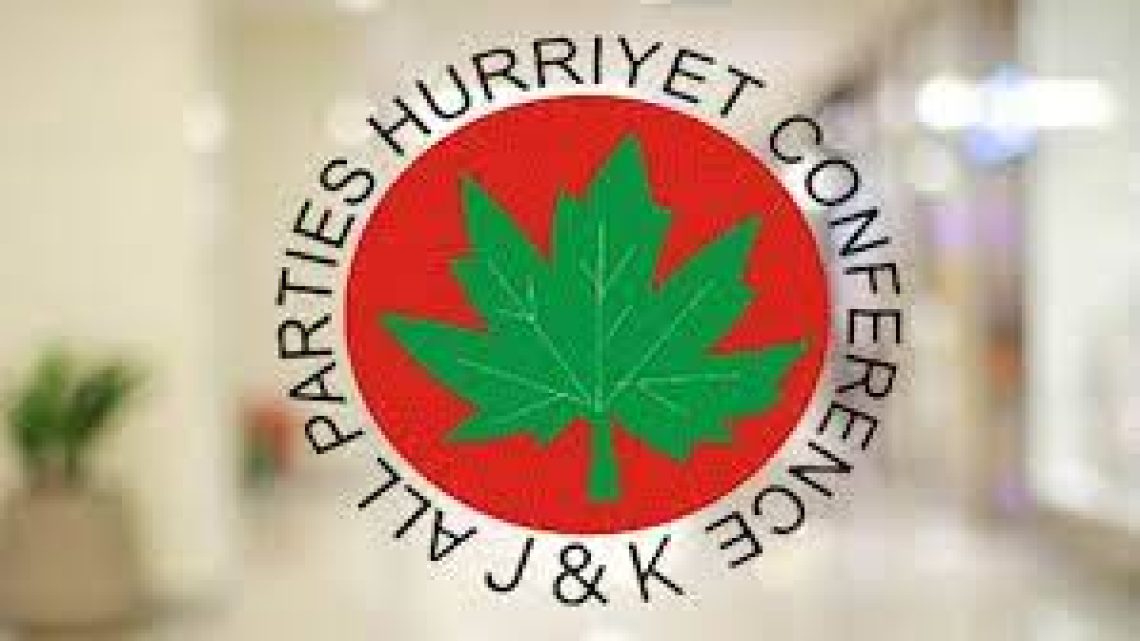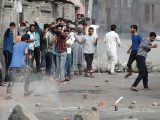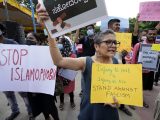
Repression and Banning in IIOJK: APHC’s Plea for International Intervention
December 28, 2023In recent developments in the ongoing Kashmir conflict, the All Parties Hurriyat Conference (APHC) has strongly condemned what it perceives as the frequent use of repressive measures and illegal bans on Hurriyat parties by Indian authorities. The APHC asserts that these measures aim to suppress the legitimate demand of Kashmiris for their inalienable right to self-determination, a right recognized by the United Nations Security Council.
According to a statement issued by an APHC spokesman in Srinagar, the banning of peace and freedom-loving parties, as well as the attachment of properties linked to them, will not deter the Kashmiri people from their righteous demand for the right to self-determination. The spokesman condemns the recent imposition of a ban on the Muslim League in Indian Illegally Occupied Jammu and Kashmir (IIOJK), led by jailed Masarrat Aalam Butt, as another act of brazen terrorism by the Bharatiya Janata Party-led Indian government.
This move follows previous bans imposed by India on various prominent Kashmiri political parties, including the Democratic Freedom Party led by Shabbir Ahmad Shah, the Jammu and Kashmir Liberation Front led by Yasin Malik, Dukhtaran-e-Millat led by Asiya Andrabi, and the Jamaat-e-Islami Jammu Kashmir. Earlier this year, the APHC head office in Srinagar was also attached by the BJP regime, which the spokesman decries as an attempt to stifle the peaceful resolution movement for the Kashmir dispute.
The APHC spokesman highlights the deteriorating health conditions of detainees, including Hurriyat leaders, youth, and activists, due to denial of basic legal rights, medical treatment, and other amenities. He cites examples of political prisoners who have lost their lives in jails or during house detention, including notable figures like Muhammad Maqbool Butt, Muhammad Afzal Guru, and Syed Ali Gilani.
The APHC appeals to the United Nations Human Rights Council and other rights organizations to take notice of the health conditions of the illegally detained Hurriyat leaders and activists. The spokesman lists a multitude of individuals, urging international bodies to intervene in their cases.
Furthermore, the APHC urges the United Nations, European Union, Organisation of Islamic Cooperation, and other influential member countries of the UN to assist the people of Kashmir, who are enduring the consequences of the Indian military power and living under the shadow of war.
In a joint statement, various APHC constituencies strongly condemn the ban on the Jammu and Kashmir Muslim League and call on the international community to play a role in the peaceful settlement of the lingering Kashmir dispute. They express frustration over the Modi government’s actions, including the banning of other political parties and the seizure of the APHC headquarters earlier in the year.
Senior APHC-AJK leader Ghulam Muhammad Safi, in Islamabad, denounces the ban on Masarrat Butt’s Muslim League Jammu and Kashmir and reaffirms the Kashmiris’ resolve to frustrate Modi’s alleged nefarious designs. He appeals to the UN to intervene and emphasize to India that ideas cannot be banned or jailed through militaristic approaches. The APHC remains steadfast in its resistance against what it deems an illegal Indian occupation, asserting that the banning of freedom-loving organizations will not succeed in stifling their ongoing struggle.

